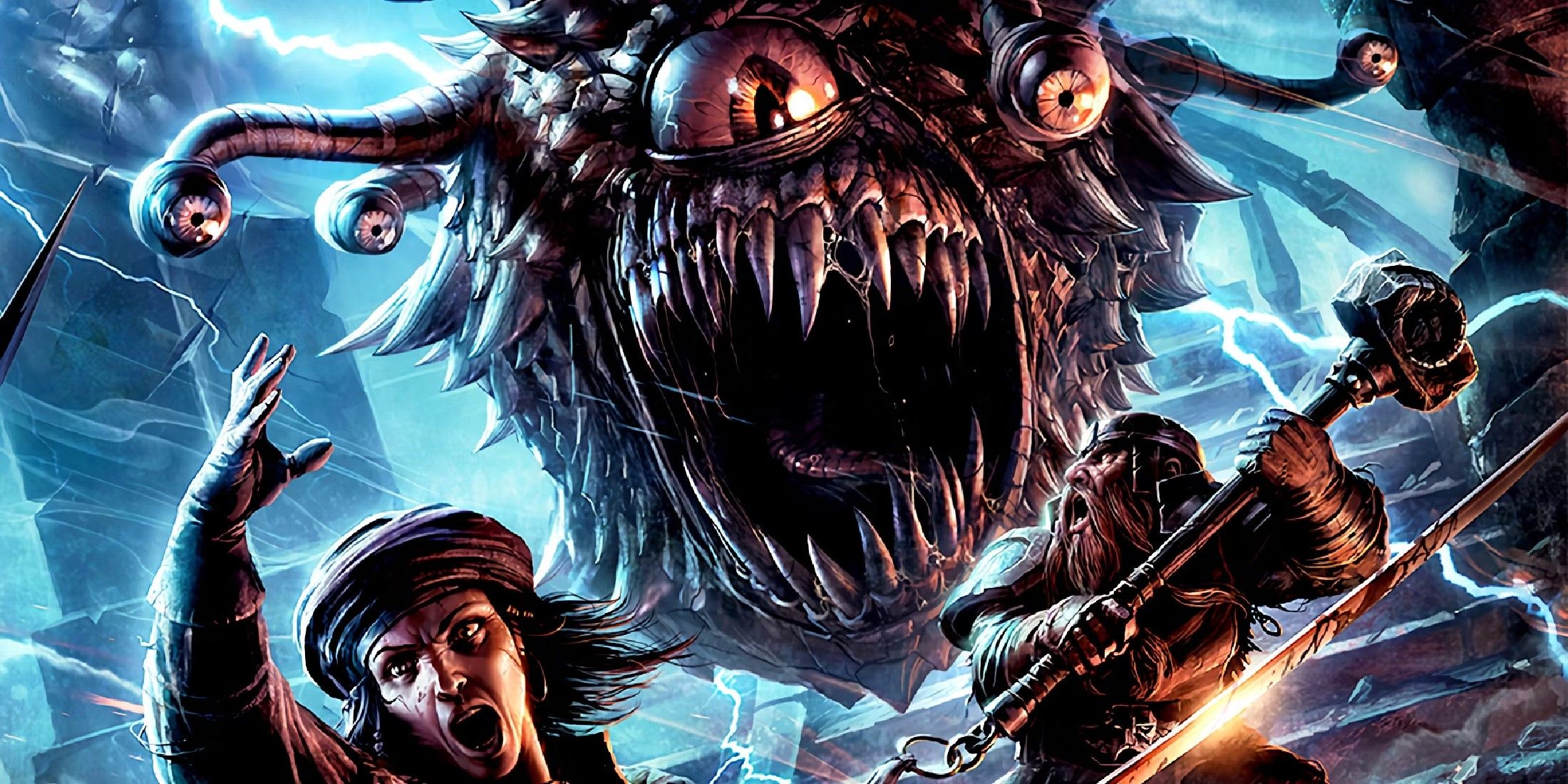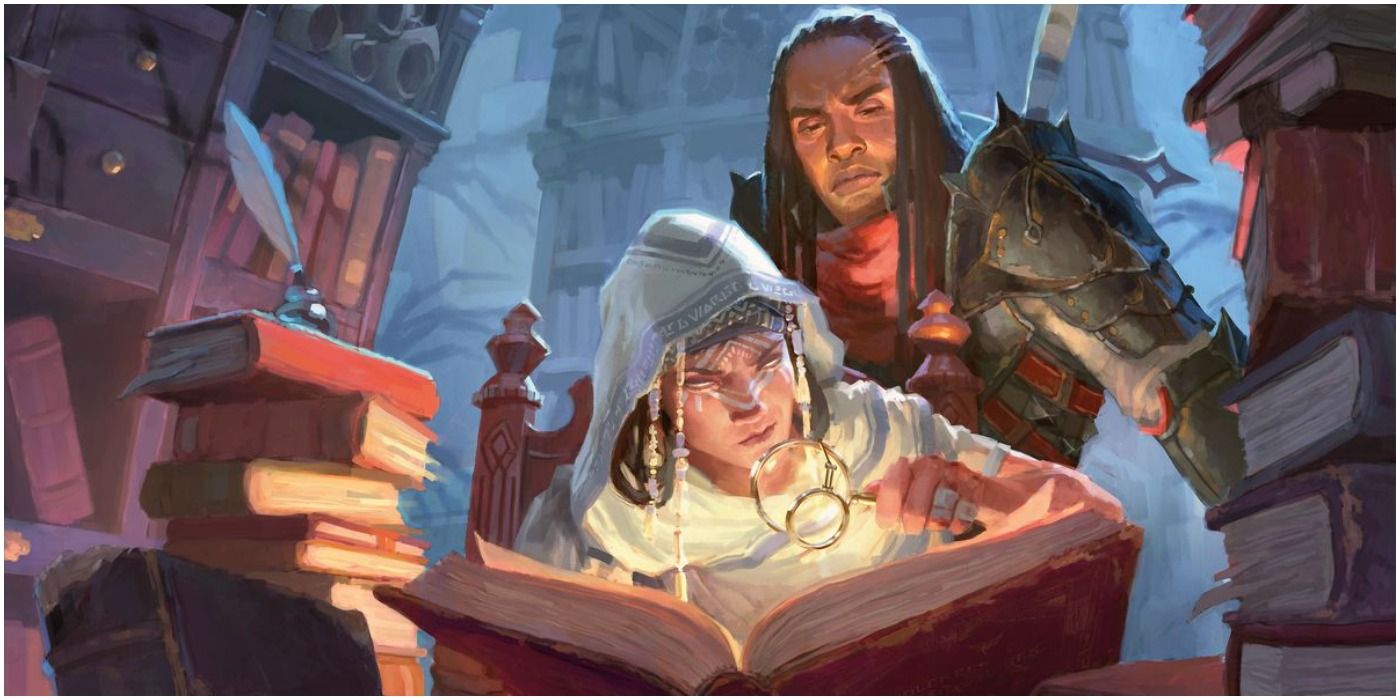The Wizard class in Dungeons & Dragons can often act as the powerhouse of a team, able to eliminate multiple enemies at once from a distance. However, while the spells at the Wizard's disposal can range from specific utility to completely game-breaking, the specifics to the class outside of this spellcasting ability is unfortunately very limited.
More than anything, it is the base class features of the Wizard that limit it, especially when compared to the dozens of passive upgrades that most other classes achieve as they level up. The abilities within their Arcane Traditions can add a descent amount of depth to these characters, but that can often be said for any other Dungeons & Dragons class as well.
The Limitations of Wizard Features in D&D
Every class learns new features as they level up in D&D 5E, coming from both their differing archetypes of each class as well as being general improvements along the base template. However, while the Wizard class has plenty of features learned from Arcane Traditions, like a Scribe's Arcane Spellbook or a Bladesinger's Armor of Defense, the base features are lacking all the way up until level 18. This means that from level 3 to level 18, the only improvements that a Wizard gains are from the number of spells it can cast, not the way it can interact with those spells.
To put this in perspective, the Rogue class in D&D 5E learns seven new features across this same amount of levels, plus the additional four learned from Roguish Archetypes. These improvements and new features are a large part of what makes leveling up so impactful, giving players a new ability to look forward to as they continue to gain experience. Access to new spells can be this incentive for many Wizards, but that same incentive still exists for Warlocks, Sorcerers, and Clerics, who also gain new class features as they progress as well.
Possible Feature Changes and Improvements in 6E Wizards
When it comes to ways that Wizard features can be improved, one simple change could come from the level 18 ability Spell Mastery. Specifically, dividing this feature across multiple levels could give a better sense of progression and flexibility for lower-level Wizards. The feature itself allows Wizards to take two of D&D 5E's low-level spells, and cast them indefinitely, as if they were cantrips, with the caveat that they must be cast at their lowest level. By giving this to a 7th or 8th level Wizard, but removing the ability to change these spells, it could make every player's Wizard more unique to their own playstyle. Then the ability to spend 8 hours changing the spells could come later.
In addition to reworking older features, some new features could also make the prospect of leveling an exciting improvement for some Wizards. Specifically, the addition of defensive or spell control abilities could go a long way towards improving the class itself. One example of a defensive feature could include taking the Necromancer's resistance to necrotic damage and instead turning it into a flat magic resistance that can change the specific damage type between rests. As for spell control, being able to limit splash damage against allies at the cost of additional spell slots or uses between rests could vastly improve the utility of Wizard spells.
Rebalancing the Spellbook in D&D 6E
Beyond improvements or additional abilities, the next best thing to address for Wizards in 6E is the Spellbook. Balance is often the name of the game when it comes to how developer Wizards of the Coast goes about preparing each edition and expansion of Dungeons & Dragons. So, with a whole new edition coming soon, this can be a great opportunity to rebalance the Spellbook that can easily become overpowered, even at lower levels.
The way the Spellbook works now gives Wizards rotating access to a vast number of spells, although they are limited in how many of these can be prepared at one time. While it can be nice to have such extended access to so many spells, as many as 16 at level 5 and more than 40 at 20th level, an explorative player and rewarding DM can technically give access to every Wizard spell in the game. A simple limit on pages or a larger cost to adding spells to the book could keep a Wizard from having to make the tough decisions of what spells to have access to. On the other hand, leaning into an overpowered Spellbook could be a solid tradeoff for the already lacking list of Wizard features. At the end of the day, it's all about how Wizards of the Coast wants to balance the development of Dungeons & Dragons 6E.
Dungeons and Dragons 5E is available now.







